White House Says No Prisoner Deal With Iran So Far
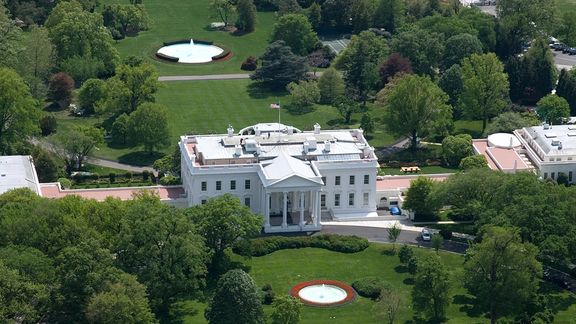
The White House said Monday there was no deal on a prisoner swap with Iran at this time, despite repeated claims by Tehran that an agreement has been reached.

The White House said Monday there was no deal on a prisoner swap with Iran at this time, despite repeated claims by Tehran that an agreement has been reached.
But the White House also said that the United States is continuing to engage with Iran over how to get home Americans unjustly detained there.
"There's no deal. And the last thing that we want to do is give false hope to families that have been waiting for a long time for their loved ones to come home," White House national security adviser Jake Sullivan told reporters.
The Iranian foreign ministry once again said earlier Monday that a "written agreement has been signed by the official representative of the United States” though it did not specify who.
Three US dual nationals and possibly two permanent residents are held by Iran in what human rights organizations call hostage diplomacy by the Islamic Republic.
Tehran, which lost the chance to conclude a nuclear deal with the US and its European allies last September, has been repeatedly claiming that a prisoner release is imminent. It is believed that in case of an agreement over the hostages, the US would agree to the release at least $7 billion in Iran’s frozen funds held in South Korea.
It would be a politically difficult decision by the Biden administration to hand over money to the Iranian regime at a time when Tehran is supplying weapons to Russia and violently suppressing its own people.
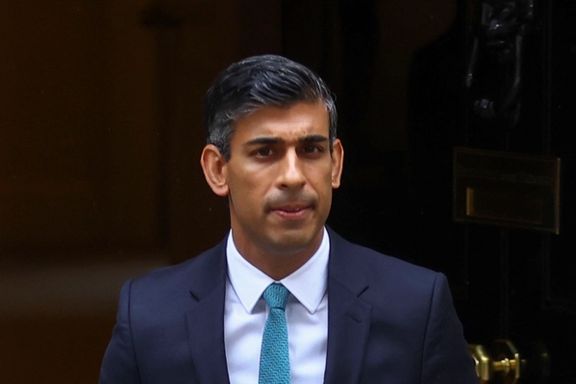
As Britain announced its new blueprint for security and international policy on Monday, Iran’s support for Russia was of grave concern.
The UK declared that the UK's security hinged on the outcome of the Ukraine war and expressed concern at support for Russia being potentially offered by China and Iran.
"China’s deepening partnership with Russia and Russia’s growing cooperation with Iran in the wake of the invasion of Ukraine are two developments of particular concern," Britain's Integrated Review (IR) said.
It has been revealed that Iran is providing Russia with drones, ammunition and missiles, in its ongoing war in Ukraine which began one year ago. In its wake, numerous crises have followed including a global food and energy supply shortage.
The decision to still not describe China as a bigger threat was likely to disappoint many in Prime Minister Rishi Sunak's governing Conservative Party, who also believe his vow to spend an extra 5 billion pounds ($6 billion) on defence is insufficient to support Ukraine without leaving Britain vulnerable.
It will also be disappointing for many that Iran did not take greater precedence in the reports, not least, given the recent evidence of the Islamic Regime being found to have tried to carry out terror acts on UK soil, including plots to kidnap Iran International journalists.
With Sunak under pressure to do more to help the defence ministry combat inflation and replace weapons sent to Ukraine, two billion pounds will go towards replenishing and increasing conventional stockpiles and investing in munitions infrastructure.
In the refresh of Britain's blueprint for security and international policy, the government warned of China’s deepening partnership with Russia, and Moscow’s growing cooperation with Iran following the invasion of Ukraine.
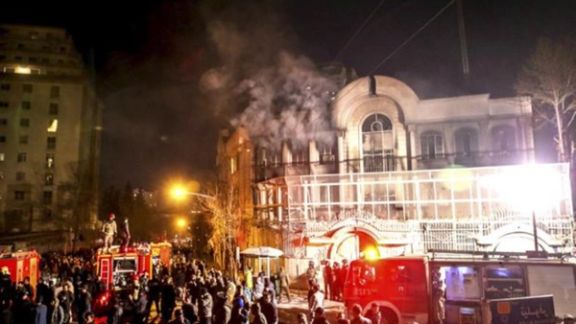
Tehran's deal to resume relations with Saudis has stirred controversy in Iranian political circles as reform politicians and media expose "hypocrisy" of hardliners.
Hossein Shariatmadari, the hardliner editor of Kayhan, who has been harshly criticized for changing his positions on the issue of relations between Tehran and Riyadh, has accused reformists of not understanding the agreement.
Shariatmadari who had shunned ties with Riyadh in 2016 as "a stigma for the Islamic Iran," changed his position to praising the recent agreement as "a hard blow to the United States and Israel." Reformist media have accused Shariatmadari of "defying his own principles."
Shariatmadari said he was happy about the agreement because unlike the previous government of Iran, he believes that regional disputes should be solved by regional states without America's intervention. However, he ignored China's role in brokering the new deal.
Meanwhile, Shariatmadari, who always likes to pretend he has exclusive access to behind-the-scenes developments, wrote elsewhere in Kayhan that the state television and other media outlets have to turn a blind eye on certain developments to serve the government's interests and to prevent foreigners from taking advantage of certain news.

In other reports on Iran, the media have reminded officials, such as President Ebrahim Raisi, of their changing views about what they had said against Saudi Arabia. Social media users posted the screenshot of quotes from Raisi in a January 4, 2016 report one day after Iranian government-led vigilante groups attacked Saudi diplomatic buildings in Iran and set fire to them, that "Iran does not need relations with Saudi Arabia." Raisi, who was then Iran's Public Prosecutor, accused Saudi Arabia of harboring and "feeding" Salafists, and characterized it as "a cancerous tumor in the region."
While other media appear to be cautiously upbeat about the agreement with Saudi Arabia, reports say that the state television continues beating on the drums of creating tensions between Tehran and Riyadh. Abdollah Ramezanzadeh, the former governor-general of Iran's Kordestan Province and an aide to former reformist President Mohammad Khatami wrote in a March 11 tweet: "Infiltrators at the state television have started programs on the national TV to prevent the Iran-Saudi agreement to come to fruition."
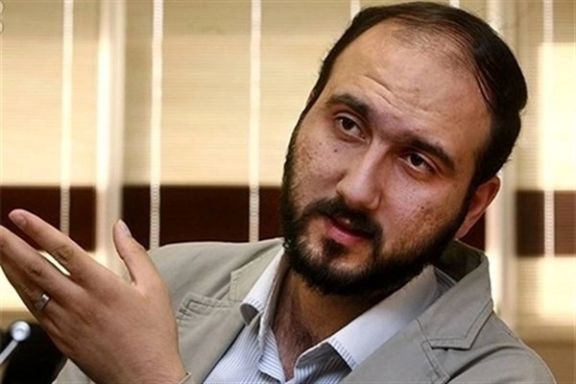
This comes while, Ali Foroughi, a vigilante group leader who was involved in the attacks on Saudi and British embassies in Iran and is now the head of the state television's Channel 3, has been accused on social media of politically benefitting from the disruption in the Tehran-Riyadh ties.
Some other social media users are adamant that the agreement is not about Iran, but it is rather about a guarantee that China's huge investments and trade interests in Saudi Arabia and elsewhere in the region remain safe from Iran's adventurism.
Other reports from Iran speculate about why Security Chief Shamkhani signed the deal in Beijing rather than foreign minister Hossein Amir-Abdollahian who apparently was visiting quake-stricken areas in Syria as Shamkhani was negotiating in China. According to Rouydad24 website, it turns out that the decision to sign the agreement in China had nothing to do with the Foreign Ministry and orders for Shamkhani came from a higher authority, presumably Supreme Leader Ali Khamenei, albeit without naming him.
Khamenei traditionally never makes any public commitment about anything to make sure that he can evade responsibility if things do not work out well.
In the meantime, news came to indicate that Amir-Abdollahian has not been idle and that he was in fact negotiating the terms of releasing US hostages, aka known as US citizens wrongly detained in Iran. However, shortly after the Iranian Foreign Minister's claim, Washington denied his statement about an agreement between Iran and the United States on a prisoner swap.
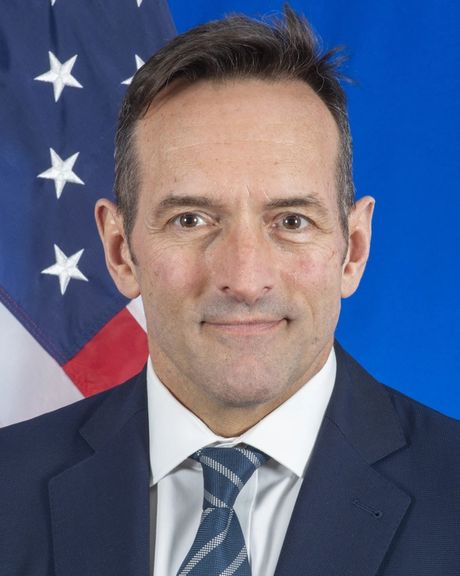
While the US State Department denies talk of a prisoner swap with Iran, a member of the media team has suggested there may be truth to the claim.
“You can imagine such discussions are sensitive and highly consequential for the US citizens who have been wrongfully detained. We will not detail any diplomatic efforts underway,” a senior official in Washington is reported to have said told Hannah Kaviani, a journalist at Radio Farda.
It comes amidst a public statement in which Washington has called Iran’s claim of a prisoner swap deal, a “cruel lie” but the latest revelations offer hope for families whose loved ones are held hostage in the Islamic Regime, that negotiations are really underway.
Roger Carstens, the US Special Presidential Envoy for Hostage Affairs (SPEHA), is on a delegation to Doha this week in which hostages are to be a major talking point, though it is unknown how many dual-national hostages are currently being held in Iran.
“Special Envoy Carstens will deliver remarks at the Global Security Forum and engage with government representatives and stakeholders on matters related to the resolution of wrongful detention and hostage cases worldwide,” the State Department added.
Iran’s Foreign Ministry Spokesman Nasser Kanaani claimed on Monday that a prisoner exchange is "feasible" and asked the US officials to be "realistic" in this regard.
"If the American side takes a realistic approach to this issue, the exchange of prisoners can be carried out as a completely humanitarian issue," he said.
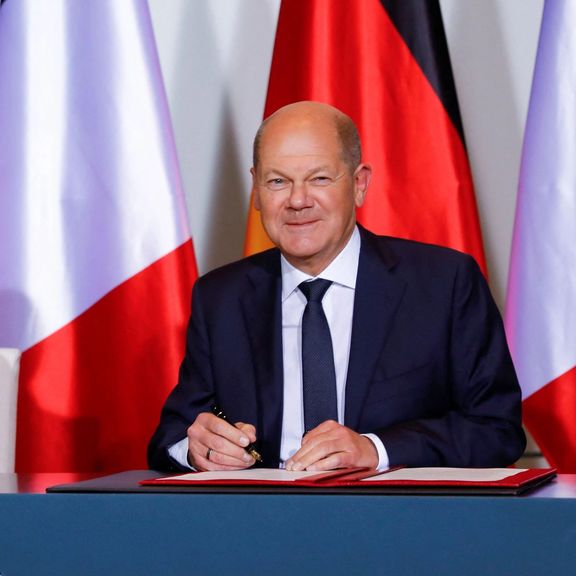
German Chancellor Olaf Scholz welcomed the agreement by Saudi Arabia and Iran to re-establish ties, but did not comment on China's role in brokering the deal.
"It is good that Saudi Arabia and Iran want to develop a less confrontational relationship with each other, and that is what can be said about it," Scholz said at a news conference on Monday alongside Bhutan's prime minister, Lotey Tshering.
Scholz's remark was one of the first by Western leaders regarding an agreement signed in Beijing on March 10, whereby Tehran and Riyadh agreed to reestablish diplomatic relations after seven years of hostility. China played the role of a broker and apparently a guarantor of the deal.
Iranian officials and media have widely portrayed the agreement as a huge defeat for the United States and Israel in the Middle East and the ascendance of China as a superior power in the Middle East.
Relations between Western states and Iran have deteriorated in the past six months and long-running negotiations over Tehran's nuclear issue came to a deadlock last September. A harsh crackdown on protests by the Iranian regime and its supply of killer drones to Russia worsened relations.
China and Europe, both dependent on oil imports, can benefit from lack of conflict in the Persian Gulf region.
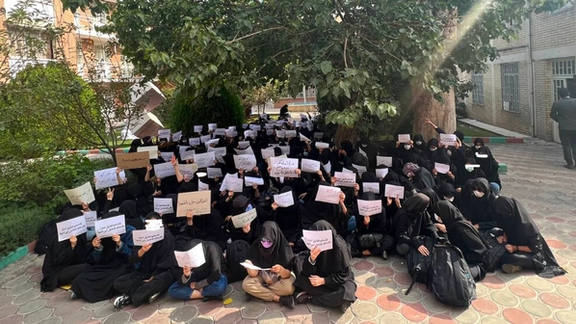
Iran’s security forces have summoned dozens of students to punish them for staging protests against the poisoning of schoolgirls across the country.
Reports from Iran say dozens more students have been banned from entering the universities of Tehran and Tabriz, a tactic which has been used throughout the Woman, Life, Freedom protests which began in September.
Having been one of the main centers of popular protests, the regime has increased the number of security agents at campuses and beefed up inspection of the students’ belongings.
According to the country's Student Union Council, 40 students of Tabriz University of Medical Sciences were summoned to the disciplinary committee after they held protests against the mysterious chemical attacks which have taken place in scores of schools and dormitories since November.
Activist Zia Nabavi claimed that last week, he and a number of other students of Allameh University in Tehran were banned from entering the campus after they staged a protest against the serial poisonings which have affected hundreds of girls across the country.
Last week, over 300 university professors condemned the organized chemical attacks in a statement, declaring that the perpetrators of the "horrible crime" are among the "cruelest, most dangerous and most hated" enemies of children and teenagers.
"This is a shame that despite claims to protect domestic and cross-border security, the government has not taken preventive measures in the face of this obvious threat to national security," read the statement.